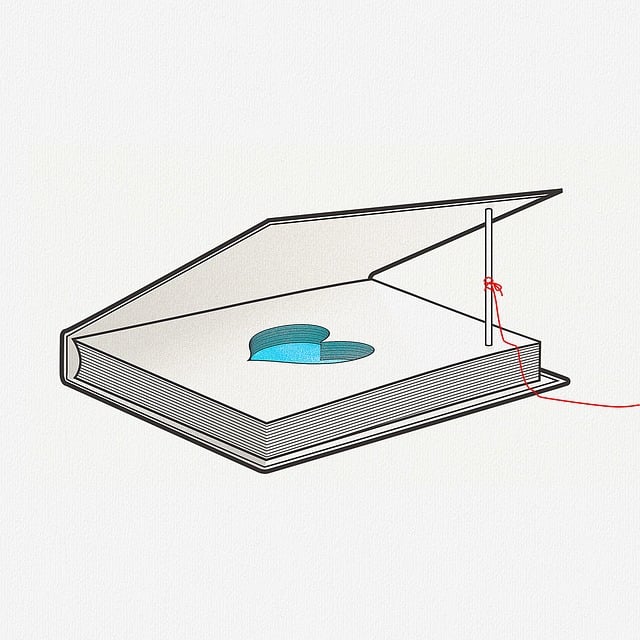Canker Sores Post-Dental Work: Unveiling the Norm
Welcome to our informative article on canker sores post-dental work: Unveiling the Norm! If you’ve ever experienced those pesky little ulcers that seem to pop up out of nowhere after a dental procedure, you’re not alone. Don’t worry though, we’re here to shed some light on this common phenomenon and explain why it happens, as well as provide some helpful tips on how to manage and prevent canker sores. So sit back, relax, and let’s dig into the world of oral health together, with a friendly tone that will surely put a smile on your face!
1. Understanding Canker Sores: A Common Concern after Dental Work
After undergoing dental work, it is not uncommon for patients to develop canker sores, causing discomfort and concern. Canker sores, also known as aphthous ulcers, are small, shallow wounds that form inside the mouth. While they are not contagious, they can be quite bothersome. Here’s everything you need to know about these pesky sores:
Potential Causes of Canker Sores:
- Accidental cheek bites or tongue injuries
- Emotional stress and a weakened immune system
- Certain foods, such as citrus fruits, spicy or salty foods
- Dental braces or other dental appliances
- Chemical irritants found in mouthwashes or toothpaste
If you discover a canker sore after your dental procedure, there’s no need to panic. These ulcers usually heal on their own within one to two weeks. In the meantime, you can try some simple home remedies to alleviate discomfort:
Remedies to Relieve Canker Sore Discomfort:
- Rinsing your mouth with warm saltwater (half a teaspoon of salt in one cup of water)
- Applying over-the-counter oral gels or creams specifically designed for canker sores
- Avoiding spicy, acidic, or rough-textured foods that can irritate the sore
- Maintaining good oral hygiene, gently brushing with a soft-bristled toothbrush
- Using a straw for drinking to minimize contact with the sore

2. The Mystery behind Canker Sores: Exploring Causes and Triggers
Are you tired of dealing with painful canker sores? These annoying ulcers can pop up without warning and make eating and talking a real challenge. In this post, we’ll delve into the mystery behind canker sores, exploring the various causes and triggers that can lead to their development.
1. Mouth injuries: Accidentally biting the inside of your cheek or tongue, or even brushing your teeth too vigorously, can result in a canker sore.
2. Food sensitivities: Certain foods, such as citrus fruits, spicy foods, or even chocolate, can irritate the delicate lining of your mouth and trigger canker sores.
3. Hormonal changes: Women often experience canker sores during their menstrual cycle or while going through menopause. Fluctuating hormones can increase the likelihood of developing these pesky sores.
4. Stress: Emotional or physical stress can weaken your immune system, making you more susceptible to canker sores.
5. Nutritional deficiencies: Lack of important nutrients like vitamins B12, folate, and iron can contribute to the development of canker sores.

3. Canker Sores Post-Dental Work: What You Need to Know
If you’ve recently undergone dental work and are experiencing canker sores, there’s no need to worry. Canker sores, also known as aphthous ulcers, are small and shallow sores that appear in the mouth and gums. They can be quite uncomfortable, but they are a common occurrence, especially after dental procedures. Here are a few things you should know about canker sores post-dental work:
- Possible Causes: Dental work can sometimes cause canker sores due to minor injuries or irritation to the delicate tissues in your mouth. This can be a result of accidental trauma during the procedure itself or from the tools used in your treatment. Additionally, certain dental materials, such as wires or braces, may also be a contributing factor.
- Temporary Discomfort: Canker sores usually last for about one to two weeks and tend to heal on their own, requiring no specific treatment. However, during this time, they can make eating and speaking uncomfortable. Using a high-quality, alcohol-free mouth rinse or oral gel prescribed by your dentist can help alleviate the discomfort and promote healing. It’s also essential to maintain good oral hygiene during this period to prevent any secondary infections.
4. Unveiling the Normal: Dealing with Canker Sores after Dental Procedures
Canker sores, also known as aphthous ulcers, are small and painful lesions that can develop on the inside of your mouth, including your gums, tongue, and lips. While these sores are generally harmless, they can be particularly challenging to deal with after dental procedures, causing discomfort and interfering with your everyday activities. Here, we will discuss some effective strategies to manage and alleviate the symptoms of canker sores post-dental procedures.
1. Maintain good oral hygiene: Keeping your mouth clean is crucial in preventing further irritation and promoting faster healing. Brush gently with a soft-bristle toothbrush, using a toothpaste without sodium lauryl sulfate (SLS) as it can exacerbate canker sore pain. Additionally, rinse your mouth with warm saltwater multiple times a day to aid in the healing process.
2. Choose the right foods: While dealing with canker sores, it is essential to consume gentle, soothing foods that do not aggravate the sores. Opt for soft, cool foods like yogurt, mashed potatoes, and smoothies. Avoid rough or acidic foods, such as potato chips or citrus fruits, which might further irritate the sores. It is also advisable to limit spicy or hot foods that can cause discomfort and prolong healing time.

5. Why Does Dental Work Sometimes Cause Canker Sores?
When it comes to dental work, one common and frustrating side effect can be the occurrence of canker sores. These small, painful ulcers that form inside the mouth can cause discomfort and make it difficult to eat or speak. While not everyone experiences canker sores after dental procedures, for those who do, understanding why they occur can offer some relief and peace of mind.
Here are a few reasons why dental work sometimes causes canker sores:
- Mechanical Irritation: The tools and instruments used during dental procedures can sometimes accidentally injure the soft tissues of the mouth, leading to the development of canker sores. This can happen when the gums, cheeks, or tongue get pinched, scraped, or bruised.
- Chemical Irritation: Certain chemicals that are used during dental procedures, such as dental cement or fluoride treatments, may irritate the delicate tissues in the mouth and trigger canker sores.
- Stress and Anxiety: Dental work, especially more invasive procedures, can be stressful for some individuals. Stress and anxiety can weaken the immune system, making it more susceptible to canker sore outbreaks.
- Preexisting Conditions: Individuals with certain underlying conditions like a weakened immune system, vitamin deficiencies, or autoimmune disorders may be more prone to developing canker sores following dental work.
While canker sores caused by dental work can be bothersome, they are usually temporary and can be managed with proper care and treatment. If you experience persistent or severe canker sores, it’s always best to consult your dentist who can offer guidance and recommend suitable remedies to alleviate the discomfort.

6. Tips and Tricks to Ease Canker Sore Discomfort after Dental Procedures
Undergoing dental procedures, such as extractions or orthodontic treatments, can sometimes lead to the development of canker sores in the mouth. While these small, painful ulcers typically heal on their own within a week or two, they can cause considerable discomfort in the meantime. Here are some tips and tricks to help alleviate canker sore pain and promote faster healing:
- Maintain proper oral hygiene: Brush your teeth gently with a soft-bristled toothbrush and use a mild, non-irritating toothpaste. Rinse your mouth with an antimicrobial mouthwash or a warm saltwater solution to keep the area clean and prevent infection.
- Avoid spicy or acidic foods: Certain foods and drinks can exacerbate canker sore pain. It’s best to steer clear of spicy foods, acidic fruits and juices, citrus, and tomato-based products until the sores have healed.
- Apply over-the-counter treatments: There are various over-the-counter therapeutic gels, ointments, and mouth rinses available that can help provide relief and promote healing. Look for products containing ingredients like benzocaine or hydrogen peroxide, which have soothing and antibacterial properties.
Protect the area: Avoid further irritation by using wax or orthodontic silicone on sharp edges of braces or dental appliances that may be aggravating the canker sores. If you have dentures or need to wear a mouthguard, make sure they fit properly and don’t rub against the affected areas.
Manage pain and inflammation: Over-the-counter pain relievers, such as acetaminophen or ibuprofen, can help reduce discomfort and swelling associated with canker sores. Be sure to follow the recommended dosage instructions and consult your dentist or pharmacist if you have any concerns or underlying health conditions.

7. The Role of Oral Hygiene in Preventing Canker Sores post-Dental Work
After undergoing dental work, it’s crucial to prioritize oral hygiene to prevent the occurrence of painful canker sores. These small, shallow ulcers can be quite bothersome and may interfere with your ability to eat, drink, or even speak comfortably. To ensure a smooth recovery and minimize the chances of developing canker sores, here are a few simple steps you can follow:
- Brush gently: While brushing your teeth is essential, it’s important to be gentle, especially in areas where dental work has been done. Use a soft-bristle toothbrush and apply light pressure to avoid irritating the sensitive tissues.
- Rinse with saltwater: After brushing, rinse your mouth with a warm saltwater solution. This natural remedy helps cleanse any bacteria that may be lurking and promotes healing.
- Avoid spicy and acidic foods: To prevent irritating the areas affected by dental work, it’s best to steer clear of spicy or acidic foods, which can trigger the development of canker sores.
Remember, proper oral hygiene is key in preventing canker sores post-dental work. By incorporating these simple practices into your daily routine, you can significantly reduce discomfort and ensure a speedy recovery. If you have any concerns or notice any persistent sores, don’t hesitate to consult your dentist for further guidance.
8. When Should You Be Concerned about Canker Sores after Dental Procedures?
If you’ve recently undergone a dental procedure, it’s important to keep an eye out for canker sores and understand when you should be concerned about them. While canker sores are common and usually harmless, they can sometimes indicate a bigger issue that requires further attention. Here are a few factors to consider:
1. Duration: Canker sores typically heal on their own within 1-2 weeks. If you notice that a sore persists for an extended period or is getting worse, it may be a cause for concern.
2. Size: Small canker sores are usually nothing to worry about. However, if you have larger sores, particularly those larger than 1 centimeter in diameter, it’s wise to consult your dentist for further evaluation.
3. Severe pain: While canker sores can be uncomfortable, they typically don’t cause intense pain. If you’re experiencing severe pain that is interfering with your daily activities, it’s important to seek professional advice.
4. Difficulty eating or speaking: If a canker sore is making it difficult for you to eat, drink, or speak properly, it’s best to have it checked by your dentist to ensure there’s no underlying issue.
5. Recurrence: An occasional canker sore is normal, but frequent recurrences could indicate an underlying problem. If you’re experiencing them frequently, it’s a good idea to consult your dentist for a thorough evaluation.
Remember, if you notice any concerning signs or symptoms related to canker sores after a dental procedure, it’s always better to err on the side of caution and seek professional advice. Your dentist is the best person to assess your situation and provide appropriate guidance for your oral health.
9. Debunking Myths: Separating Facts from Fiction about Canker Sores and Dental Work
Canker sores are a common oral condition that often gets surrounded by myths and misconceptions. It’s important to separate fact from fiction when it comes to canker sores and dental work. Let’s debunk some of the most common myths and provide you with accurate information:
Myth 1: Dental work causes canker sores.
Fact: While dental work can sometimes trigger canker sores in individuals prone to them, it is not the direct cause. Canker sores typically result from factors like stress, hormonal changes, or a weakened immune system. Although dental procedures may cause temporary discomfort or irritation, they do not directly cause canker sores. However, if you consistently develop canker sores after specific dental procedures, it’s vital to inform your dentist so they can adjust their approach to accommodate your needs.
Myth 2: Canker sores are contagious.
Fact: Canker sores are not contagious. Unlike cold sores, which are caused by the herpes simplex virus, canker sores are not viral and cannot be transmitted through contact. You cannot pass canker sores to others by sharing utensils, kissing, or engaging in any form of physical contact. Canker sores are fundamentally a result of internal factors and are not infectious. Remember, maintaining good oral hygiene and a healthy lifestyle can help prevent or alleviate the discomfort of canker sores.
10. Seeking Professional Help: When to Consult Your Dentist about Canker Sores
If you’re experiencing persistent or severe canker sores, it may be time to seek professional help from your dentist. While most canker sores heal on their own within one to two weeks, there are situations where consulting a professional can expedite the healing process and provide relief from the pain.
Here are some signs that indicate when it’s time to consult your dentist:
- Recurrent canker sores: If you frequently experience canker sores, it’s a good idea to reach out to your dentist. They can help determine the underlying cause and provide strategies to prevent future outbreaks.
- Large or persistent sores: If your canker sore is larger than usual or hasn’t shown signs of improvement after two weeks, it’s wise to consult your dentist. They can assess the sore and recommend appropriate treatment options.
- Intense pain: If your canker sore is causing unbearable pain that affects your ability to eat, drink, or speak, it’s important to seek professional help. Your dentist can suggest pain management techniques or prescribe medication to alleviate discomfort.
Remember, your dentist is a valuable resource when it comes to your oral health. Don’t hesitate to schedule an appointment if you’re unsure about your canker sore or if it’s causing significant discomfort. They have the expertise to provide guidance and ensure your mouth remains healthy and pain-free.
Frequently Asked Questions
Q: What are canker sores and how do they relate to dental work?
A: Canker sores, also known as aphthous ulcers, are shallow, painful lesions that can develop inside your mouth. While they can occur due to several factors, dental work is known to be a common trigger.
Q: Why do canker sores tend to form after dental procedures?
A: Dental work can cause minor trauma to the soft tissues in your mouth, leading to the development of canker sores. The use of dental instruments, cheek retractors, or even accidental biting during anesthesia can irritate the delicate lining of your mouth, increasing the chances of canker sore formation.
Q: Are canker sores a cause for concern?
A: Canker sores are typically harmless and generally heal within one to two weeks, even without treatment. However, if you experience severe pain, difficulty eating or drinking, or notice additional symptoms such as fever or swollen lymph nodes, it is advisable to seek dental or medical attention.
Q: What are some common symptoms of canker sores?
A: Canker sores usually appear as round or oval-shaped ulcers with a white or yellowish center and a red border. You may experience a burning or tingling sensation prior to the development of the sore. Eating, drinking, or even brushing your teeth can irritate the sore, causing discomfort.
Q: How can I manage the pain and discomfort associated with canker sores post-dental work?
A: Over-the-counter topical creams or gels containing ingredients like benzocaine or lidocaine can help numb the area, providing temporary relief from pain. Rinsing with saltwater or using an antimicrobial mouth rinse can also aid in soothing the sore and promoting healing.
Q: Are there any preventive measures to reduce the likelihood of canker sores after dental procedures?
A: While it’s not always possible to prevent canker sores completely, there are a few steps you can take to minimize their occurrence. Inform your dentist about any history of canker sores before undergoing dental work, as they may advise on alternative techniques or use protective barriers during procedures.
Q: Can certain dietary choices aggravate canker sores?
A: Yes, certain foods such as spicy or acidic items like citrus fruits, tomatoes, or hot peppers can exacerbate canker sore pain. Additionally, abrasive foods like potato chips or nuts can irritate the sore. Opting for a softer, more neutral diet until the sore heals can help reduce discomfort.
Q: Are there any home remedies that can help heal canker sores?
A: While there is limited scientific evidence, some home remedies have shown to be beneficial for some individuals. Applying a small amount of honey, coconut oil, or aloe vera gel directly to the sore may help relieve pain and promote healing. However, it’s always best to consult your dentist or healthcare professional before trying any home remedies.
Q: When should I contact my dentist or healthcare provider about a canker sore from dental work?
A: If the sore persists for more than two weeks, becomes increasingly painful, or shows signs of infection (e.g., pus, spreading redness), it’s essential to reach out to your dentist or healthcare provider. They can evaluate the situation and provide appropriate treatment or advice.
Q: Is there any way to prevent canker sores entirely during dental work?
A: While it may not be possible to completely prevent canker sores, you can increase your chances of avoiding them by maintaining good oral hygiene, avoiding trigger foods, and notifying your dentist of any history of canker sores before dental procedures. Your dentist can take extra precautions to minimize trauma to your mouth and reduce the likelihood of developing canker sores.
Conclusion
In conclusion, canker sores post-dental work are indeed a common occurrence and nothing to be alarmed about. Understanding the reasons behind their appearance and knowing how to effectively manage them can greatly alleviate any discomfort or worry. Remember, these ulcers usually heal on their own within a week or two, but if you experience prolonged pain or notice any unusual symptoms, do not hesitate to contact your dentist for further advice. By practicing good oral hygiene, staying hydrated, and keeping stress levels in check, you can minimize the likelihood of developing canker sores after your next dental procedure. So, the next time you find one of these pesky sores making an appearance, stay calm, follow our tips, and before you know it, you’ll be back on track towards a healthy smile. Happy healing!






